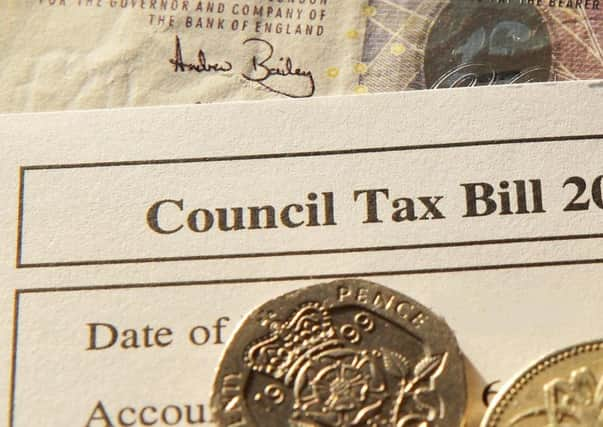New council tax freedoms '˜will raise just one fifth of budget reductions for Lincolnshire'


According to the CCN, new freedoms to raise an additional 1 per cent in council tax will raise just one fifth of what is being cut from Lincolnshire County Council’s budget – putting local services under pressure whilst rural taxpayers pay more than their urban counterparts.
The figures show that Lincolnshire County Council will only raise £2.5m from the extra 1 per cent on council tax, failing to offset a reduction of £11.2m in its core funding in 2018/19.
Advertisement
Advertisement
Between 2015 and 2020, the county has faced a 35 per cent drop in core funding, equating to £69.4m. This comes during a period where the council faces additional costs from inflationary increases, and the National Living Wage, whilst demand for services also rises.
A delegation of County MPs have had crunch meetings with both the Local Government Secretary and the Chancellor this week, in a bid to secure extra resource for councils, including an extension of transitional grants, or an extension of the adult social care grant, before the final settlement is announced next week.
The CCN said that Lincolnshire County Council hopes to balance its budget for the next two years by proposing to use £48m of reserves, finding £34m in savings and increasing council tax. However, reserves can only be spent once and will leave little left in the bank to deal with the continued financial shortfall.
County leaders say without more resources, this shortfall in funding will lead to them having to make ‘unpalatable’ decisions in future years, unless the government makes a long-term sustainable funding commitment to local authorities.
Advertisement
Advertisement
They say that counties are unfairly penalised, as Lincolnshire County Council’s core funding will reduce by 35 per cent between 2015-20, compared to 22 per cent on average for councils in London and 28 per cent for urban, city, and metropolitan authorities on average.
The CCN adds that, without additional funding, they will have little choice but to raise council tax next year to make up some of the shortfall.
Councillor Martin Hill, Leader of Lincolnshire County Council, said: “Our campaign for fairer funding in Lincolnshire resulted in a positive meeting with Government ministers and some Lincolnshire MPs at the end of last year. I’m pleased that the Government has recognised this as a real issue that needs to be addressed, with our budget shortfall increasing every year.
“We’re calling for a sustainable funding deal which recognises our future needs, especially in areas like adult social care where costs are projected to increase by £8m over the next two years alone.
Advertisement
Advertisement
“In counties like Lincolnshire, where sparsity and rurality make providing services significantly more expensive, a fairer funding deal would make an enormous difference to Lincolnshire residents and the services they value.”
Due to continuing cuts and what CCN call an ‘outdated and unfair’ funding system, residents in counties will receive just £161 of core funding per head by the end of the decade compared to an England average of £266, and £459 in London.
The CCN argues that new funding could prevent the widespread closure of frontline services and non-statutory services and help limit the level of council tax rises in counties - adding that it would also help fulfil Ministers’ promises to smooth the transitional to a new ‘fairer’ funding formula. Reforms to overhaul the way councils are funded have been delayed since they were announced in 2016, and will now not come into force until 2020/21 at the earliest.
Councillor Paul Carter, chairman of the County Councils Network, said: “Over the past seven years shire counties have faced the toughest financial challenge of all, with rising demand for services meaning we already face a £2.54bn funding black hole in 2020/21. This comes on top of being the lowest funded councils.
Advertisement
Advertisement
“Residents in rural counties will be asking why they are paying so much more in council tax than anyone else but receiving so much less.
“Two years ago we faced a similar situation, and the government listened to our concerns. I hope Ministers in Whitehall see sense and provide Sajid Javid with the resources he needs to extend this help and prevent unfair cuts and council tax rises in our county heartlands.”